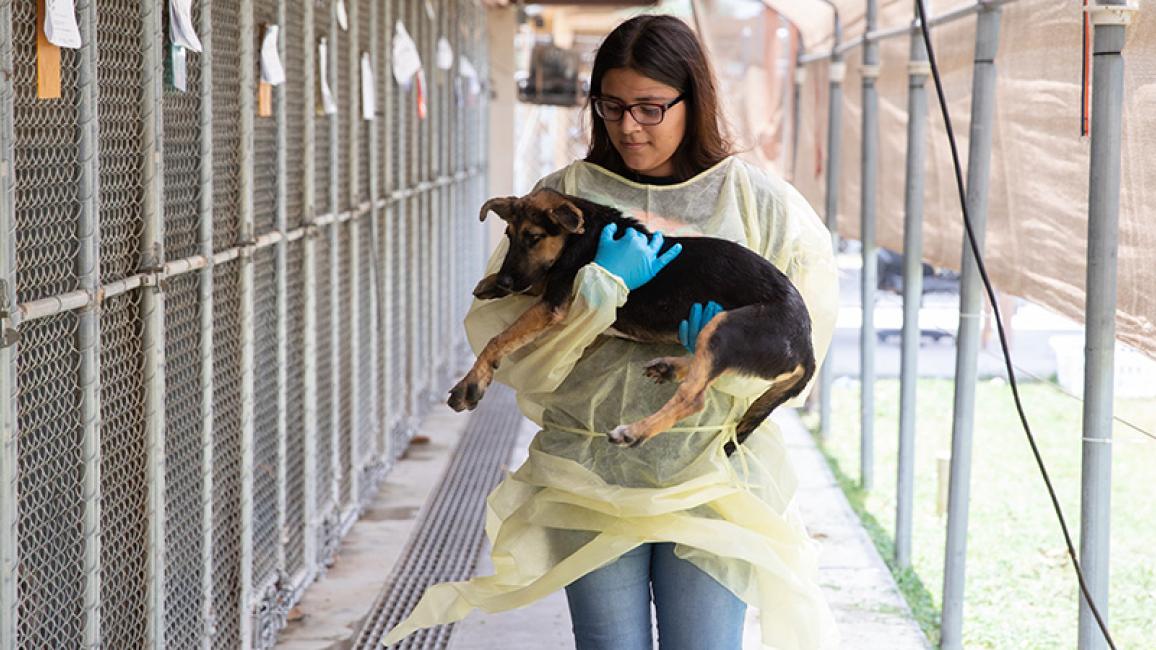In this together

I caught a news story last week about the New England Patriots loaning their team plane and offering other support to the Boston and New York areas to replenish critical medical supplies during COVID-19. And as it turns out, that story is not unique.
There’s a lengthy list of professional sports teams and athletes coming together around the country to support their communities in powerful ways during the crisis, including creating funds to compensate arena and team staff and partnering with local companies to find alternative ways to keep those people employed.
Neighbors helping neighbors with supplies and store runs. Churches banding together to create support networks for immune-compromised community members. Distilleries and retailers teaming up to crank out large batches of free hand sanitizer. Local farmers and markets partnering to provide healthy food and meals to school kids and unemployed workers. Restaurants joining forces to prepare and deliver food to frontline workers.
That community-driven team spirit is rolling out in waves around the globe. There is nothing quite like the collaborative and collective spirit of individual people, groups, communities, organizations, companies and even countries coming together to support one another and save lives in times of crisis.
For me, nowhere is this beautiful fact more apparent than in the animal welfare world I’ve inhabited for the last 26 years. When disaster strikes, we pull together, pool our vast resources, mobilize our skill sets and get shit done.
Pets are family and a foundational part of our communities, which means that organizations working to support and save pets around the country are an essential part of any crisis response effort.
Experiences like Hurricane Katrina have taught us time and again that people whose lives are at risk will choose to literally weather the storm rather than leave an animal member of the family behind without assurance of care. When pets are left out of the emergency response equation, people routinely fail to follow public safety directives because doing so is unimaginable for them. The bottom line: Protecting pets means also supporting and protecting the people who love and care for them.
As COVID-19 swiftly dismantled our everyday lives over the last month, Best Friends and our fellow lifesaving organizations have been working hand-in-hand to create a safety net for people and pets around the country, including homeless pets in shelters.
From expanding foster care networks and creating virtual pet adoptions to coordinating a national pet-food distribution plan, from ensuring that animal sheltering and veterinary care are designated as essential services to broadening access to veterinary telemedicine, the animal welfare community has been coordinating efforts, sharing resources and innovating like never before. Here are some examples:
- The Association (AAWA) is distributing a daily Animal Welfare Digest featuring critical information from leading national animal groups around the country, along with veterinary updates from the nation’s leading shelter medicine programs.
- American Pets Alive! has been providing idea-sharing forums for shelter leaders around the country, conducting surveys on lifesaving activities and needs, and creating essential resources for lifesaving partners to use, including their COVID-19 Animal Shelter Preparedness Guide.
- The ASPCA launched a $5 million COVID-19 Relief and Recovery Initiative to distribute lifesaving grants to animal welfare organizations in need.
- Greater Good has been coordinating and communicating with multiple organizations to deliver and distribute pet food to under-resourced areas of the country. Wellness, Best Friends’ official pet food partner, came through in a major way, donating nearly 250 pallets of food to the effort.
- Shelter medicine programs like those at UC Davis, the University of Florida and the University of Wisconsin are providing critical research and guidelines related to COVID-19 to help veterinarians and shelters keep both pets and people safe.
- The National Animal Care & Control Association (NACA) is continuously rolling out new guidelines, protocols and resources to keep officers and the public safe and minimize the number of animals entering shelters during the crisis.
- The Humane Society of the United States (HSUS) wasted no time collaborating with partners and working to ensure that shelters and veterinarians are permitted to provide essential services to the public while still following stay-at-home orders.
- Petco Foundation is continuing to provide critical support to shelter partners and promoting pet fostering and adoption nationwide.
- Maddie’s Fund® has created a comprehensive COVID-19 and Emergency Foster Care Resources web page and continues to provide critical support of lifesaving technology and other resources for animal welfare organizations.
- In southern Texas, we’re witnessing interorganizational collaboration for the history books, thanks to the Maddie’s Shelter Embed Project in the Rio Grande Valley, where Palm Valley Animal Society and Harlingen Humane Society are lending a helping hand to each other.
- Best Friends, HSUS, AAWA and the Humane Society Veterinary Medical Association signed a joint letter to state governors to help relax requirements of the veterinarian-client-patient relationship to ensure that people who are required to stay at home can still access essential veterinary care for their pets.
And that’s just the tip of the collaborative lifesaving iceberg. This type of unified, cooperative work is unfolding in every community, county, state and sector in the country. It is awe-inspiring to be a part of it.
Let’s keep being kind to one another. Let’s keep caring for one another, as well as ourselves. And let’s raise a glass to organizations of every shape and size around the country working together to support people and pets.
